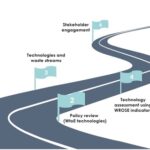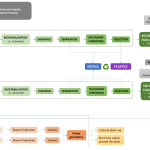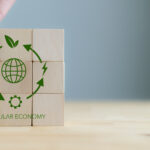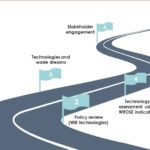This website uses cookies so that we can provide you with the best user experience possible. Cookie information is stored in your browser and performs functions such as recognising you when you return to our website and helping our team to understand which sections of the website you find most interesting and useful.

Publications
-
Energy from waste: Regional Sustainability Workshop Series
Mar 2024In several places in the world, there is still a poor public perception of Energy- from-Waste systems. Lack of transparency during the decision-making process, not inviting residents and stakeholders to be part of the project, as well as lack of information exchange between the operators and the clients may lead to poor public acceptance. Developing […]
read more -
Case study about a MSW sorting facility in Italy – Eco+Eco Srl
Feb 2024Case study about a MSW sorting facility in Italy – Eco+Eco Srl This report is part of a series of reports to explore lessons on sorting technologies for waste in the field of material and energy valorisation of waste within the framework of IEA Bioenergy Task 36. The purpose is to showcase examples from which […]
read more -
Workshop report: Decarbonisation of the Waste Sector: Global Experiences
Dec 2023Workshop report: Decarbonisation of the Waste Sector: Global Experiences SUMMARY This report summarises the deliberations of a hybrid workshop that IEA Bioenergy Task 36 organised in Durban, South Africa, on the topic of “Decarbonisation of the Waste Sector: Global Experiences” on 29th and 30th of November 2022. This 2-day workshop is the second of […]
read more -
Material and Energy Valorization of Waste as Part of a Circular Model
May 2023Read the full publication This article is part of the IEA Bioenergy Annual Report 2022. It was developed by the members of IEA Bioenergy Task 36, a working group that seeks to understand what role energy from waste and material recycling can have in a circular economy and identify technical and non-technical barriers and opportunities needed […]
read more -
NEW REPORT: Review of WtE Policies in South Africa & International Comparisons
Mar 2023This report is a review of the Waste-to-Energy (WtE) policy in South Africa within the framework of the IEA Bioenergy Task 36. Drivers and barriers in the implementation of WtE solutions in different counties (i.e.,Germany, Ireland, Italy, Norway, Sweden and United States of America) are also presented and discussed. This document provides countries with inspiration […]
read more -
Deployment of BECCUS value chain – Synthesis Report
Feb 2023Deployment of BECCUS value chain – From concept to commercialization Synthesis Report – Synthesis Report – Over the duration of the 2019-2021 IEA Bioenergy triennium, a consortium of IEA Bioenergy Tasks – Task 36, Task 40, Task 44 and Task 45 – collaborated on an inter-task project called Deployment of BECCUS value chains. The objective […]
read more -
Webinar report about Decarbonization in a circular economy
Feb 2023Transitioning towards a decarbonised circular economy: Focus on Waste to Energy Report of a digital webinar held on June, 2021. This report summarises the deliberations of a digital workshop that Task 36 conducted in collaboration with SABIA (the South African Biogas Industry Association) on “Transitioning towards a decarbonised circular economy: Focus on Waste to Energy” […]
read more -
Case study: Valorisation of biowaste in the United States: Distributed biogas upgrading to Renewable Natural Gas (RNG) using biomethanation
Jun 2022Valorisation of biowaste in the United States: Distributed biogas upgrading to Renewable Natural Gas (RNG)using biomethanation Renewable natural gas deployments in the United States have increased significantly in recent years. As of 3/31/2020, there are 119 operational projects with a further 88 under construction. Renewable natural gas upgrading is a mature technology that processes biogas […]
read more -
Sorting technologies – Case study about a MSW sorting facility in Norway – IVAR
May 2022Sorting technologies Case study about a MSW sorting facility in Norway – IVAR The IVAR plant combines post-sorting of residual waste with recycling of some of the plastic waste fractions. At the plant five different fraction of plastics, four fractions of paper, bio-waste, glass, and metal packaging are separated. In total 83.2 % by weight […]
read more





